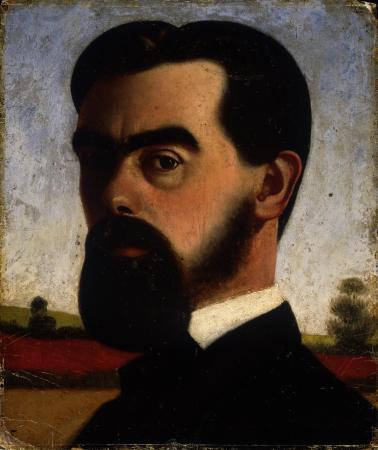“La vie est l’art de tirer des conclusions des prémisses insuffisantes.”
Life is the art of drawing sufficient conclusions from insufficient premises.
en
Samuel Butler était un écrivain britannique principalement connu pour sa satire Erewhon, ou De l’autre côté des montagnes. Wikipedia

“La vie est l’art de tirer des conclusions des prémisses insuffisantes.”
Life is the art of drawing sufficient conclusions from insufficient premises.
en
Life is like music, it must be composed by ear, feeling and instinct, not by rule. Nevertheless one had better know the rules, for they sometimes guide in doubtful cases, though not often
en
“On peut tous faire des grandes choses, si on sait qu’est-ce qu’une grande chose.”
All men can do great things, if they know what great things are.
en
The advantage of doing one’s praising for oneself is that one can lay it on so thick and exactly in the right places.
en
It is far safer to know too little than too much. People will condemn the one, though they will resent being called upon to exert themselves to follow the other.
en
St Anthony tempted the devils quite as much as they tempted him; for his peculiar sanctity was a greater temptation to tempt him than they could stand. Strictly speaking, it was the devils who were the more to be pitied, for they were led up by St Anthony to be tempted and fell, whereas St Anthony did not fall.
en
Life is not so much a riddle to be read as much as a Gordian knot that will get cut sooner or later.
en
Life is a superstition. But superstitions are not without their value. The snail's shell is a superstition, slugs have no shells and thrive just as well. But a snail without a shell would not be a slug unless it had also the slug's indifference to a shell.
en
“C'est facile d'avoir des avis plus justes quand tout le monde les a déjà.”
It's easy to have juster views when everybody else has them.
en
It has, I believe, been often remarked, that a hen is only an egg's way of making another egg.
en
Source: Erewhon (1872), Ch. 27
Genius, iii
The Note-Books of Samuel Butler (1912), Part XI - Cash and Credit
“I do not mind lying, but I hate inaccuracy.”
Falsehood, iv
The Note-Books of Samuel Butler (1912), Part XIX - Truth and Convenience
Hamlet, Don Quixote, Mr. Pickwick and others
The Note-Books of Samuel Butler (1912), Part XIV - Higgledy-Piggledy
The Art of Propagating Opinion
The Note-Books of Samuel Butler (1912), Part X - The Position of a HomoUnius Libri
Public Opinions
The Note-Books of Samuel Butler (1912), Part XVII - Material for a Projected Sequel to Alps and Sanctuaries
“Though analogy is often misleading, it is the least misleading thing we have.”
Thought and Word, ii
The Note-Books of Samuel Butler (1912), Part VII - On the Making of Music, Pictures, and Books
Argument
The Note-Books of Samuel Butler (1912), Part X - The Position of a HomoUnius Libri
Trying to Know
The Note-Books of Samuel Butler (1912), Part X - The Position of a HomoUnius Libri
The Artist and the Shopkeeper
The Note-Books of Samuel Butler (1912), Part XI - Cash and Credit
Action and Study
The Note-Books of Samuel Butler (1912), Part IX - A Painter's Views on Painting
“The true laws of God are the laws of our own well-being.”
God's Laws
The Note-Books of Samuel Butler (1912), Part II - Elementary Morality
Source: Erewhon (1872), Ch. 19
A Psalm of Montreal http://www.geocities.com/~bblair/011204.htm, st. 1 (1884)
The Iliad of Homer, Rendered into English Prose (1898), Book XXII
Thought and Word, vi
The Note-Books of Samuel Butler (1912), Part VII - On the Making of Music, Pictures, and Books
Early Art
The Note-Books of Samuel Butler (1912), Part IX - A Painter's Views on Painting
“If I die prematurely, at any rate I shall be saved from being bored by my own success.”
Compensation
The Note-Books of Samuel Butler (1912), Part X - The Position of a HomoUnius Libri
“The man who lets himself be bored is even more contemptible than the bore.”
The Fair Haven http://www.gutenberg.org/dirs/etext04/fhvn10h.htm, Memoir of the Late John Pickard Owen, Ch. 3 (1873)
Choice
The Note-Books of Samuel Butler (1912), Part XX - First Principles
Source: Erewhon (1872), Ch. 25
Entertaining Angels
The Note-Books of Samuel Butler (1912), Part X - The Position of a HomoUnius Libri
Source: Erewhon (1872), Ch. 9
Truth, vii
The Note-Books of Samuel Butler (1912), Part XIX - Truth and Convenience
Birth and Death, ii
The Note-Books of Samuel Butler (1912), Part I - Lord, What is Man?
Truth, ii
The Note-Books of Samuel Butler (1912), Part XIX - Truth and Convenience
Personal Identity
The Note-Books of Samuel Butler (1912), Part IV - Memory and Design